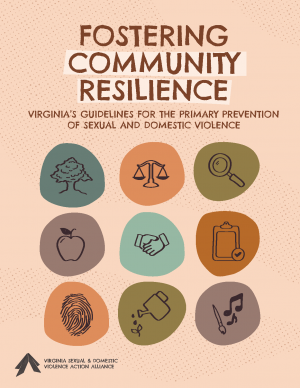Resources Library: Advocates
Start a Search:
Forced Marriage is Abuse
The Universal Declaration of Human Rights (Article 16) states that “marriage shall be entered into only with the free and full consent of the intending spouses.” As such, forced marriage is a clear violation of human rights.
The tactics used to force someone into marriage or to punish him or her for leaving a forced marriage are also human rights violations. The life of someone forced into marriage may consist of daily abuses, including rape, forced labor, domestic violence, and deprivation of the right to education, which can result in severe and long-term harm, including deteriorating medical and mental health.
The Tahirih Justice Institute's www.preventforcedmarriage.org website is an incredibly useful tool that serves as a resource library for service providers and includes over 10 recorded webinars on different topics related to providing services to forced marriage survivors and individuals at risk, as well as research papers, including the 2011 survey study on "Forced Marriage in Immigrant Communities in the United States", recommended books, and a news archive.
Also, check out the Forced Marriage 101 Webinar and the attached brochure and fact sheet to learn more about how forced marriage impacts individuals in the United States.
Fostering Community Resilience: Virginia’s Guidelines for the Primary Prevention of Sexual and Domestic Violence

The purpose of Fostering Community Resilience: Virginia’s Guidelines for the Primary Prevention of Sexual and Domestic Violence is to assist local communities in creating primary prevention strategies that focus on identifying and dismantling the root causes of sexual and domestic violence. The Guidelines have been built on the foundations of two core concepts: social justice principles and public health models.
Visit https://guidelines.vsdvalliance.org/ for more information about each guideline, in addition to resources and tools for prevention program development. To download the PDF of the guidelines, click this link.
Published by the Virginia Sexual & Domestic Violence Action Alliance, 2022. 34 pages.
Framing the Issues: Looking at the Opioid Epidemic in the Context of Trauma and Domestic Violence
This timely and important webinar produced by National Resource Center to Enhance Safety of Native Women and their Children will provide an overview of what is known about the opioid epidemic and will focus on the specific concerns of Indian communities and tribal domestic violence programs and shelters. It will lay the foundation for the exploding opioid epidemic and will examine the intersections between trauma, domestic violence and the opioid epidemic and explore innovative approaches to addressing these complex issues.
Click here to view the webinar.
From Hurt to Hope: A Child Sexual Abuse/Assault Advocacy Guide
From Hurt to Hope: A Child Sexual Abuse/Assault Advocacy Guide: A guide from WCSAP (Washington Coalition of Sexual Assault Programs) that provides foundational knowledge of best practices for advocates working with youth and their caregivers. The guide includes an overview of Child sexual Abuse/assault, general advocacy, medical advocacy, legal advocacy, system's coordination, information and referral, and crisis intervention.
Guidance on Access to Domestic and Sexual Violence Service
Memorandum that provides clarification on law and policy with regard to Virginia’s Local Family and Intimate Partner Fatality Review Teams’ review of service information for decedents who had accessed sexual and domestic violence services.
Written by: Virginia Department of Health, Office of the Chief Medical Examiner. September, 2010. 10 pages.

